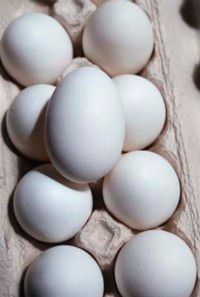Food Storage and Expiration Dates
Q. How can I be sure that I'm using fresh ingredients? How long will meat, milk, and cheese last?
A. Fresh ingredients and how long they last depend on the type of food you're dealing with.
- Fruit and Vegetables: To ensure that your ingredients are fresh, it's a good idea when possible to buy fruits and vegetables when they're in season. They will have the best flavor that way. Fruits like apricots, peaches, plums, pears, and cantaloupes will ripen as they sit, but be sure to buy grapes, berries, cherries, and watermelons at their peak as they won't ripen no matter how long they sit on your kitchen table.
- Chicken: Check chicken to see that the skin does not have an "off" color and is not slimy or oily. These are characteristics that indicate the chicken is past its prime.
- Beef and Lamb: When buying beef and lamb, check to see that the beef has a bright cherry red color and the lamb is slightly paler. A brownish color is a good indication that the meat may have been around longer than it should. Use or freeze ground beef within a day of purchase; whole muscle meats like chicken, steak and chops can keep in the refrigerator about 3 days.
- Milk: Be sure to buy milk with a sell by date at least four days away. Once you get the milk home, it should last up to a week in the refrigerator.
- Eggs: Keep eggs longer by storing them in their carton in the refrigerator and not in the door. For the freshest eggs, use them within 3 weeks of purchase.
- Cheese: Hard cheeses like Cheddar and Swiss can keep up to two months in the refrigerator; soft cheeses like Brie and Muenster should be used within five to seven days of purchase.
Don't let the date on the package be your only guide. If something doesn't look fresh or smells sour, trust your instincts and don't use it.
Advertisement
To learn more about storing food, specifically brown sugar, continue to the next page.
